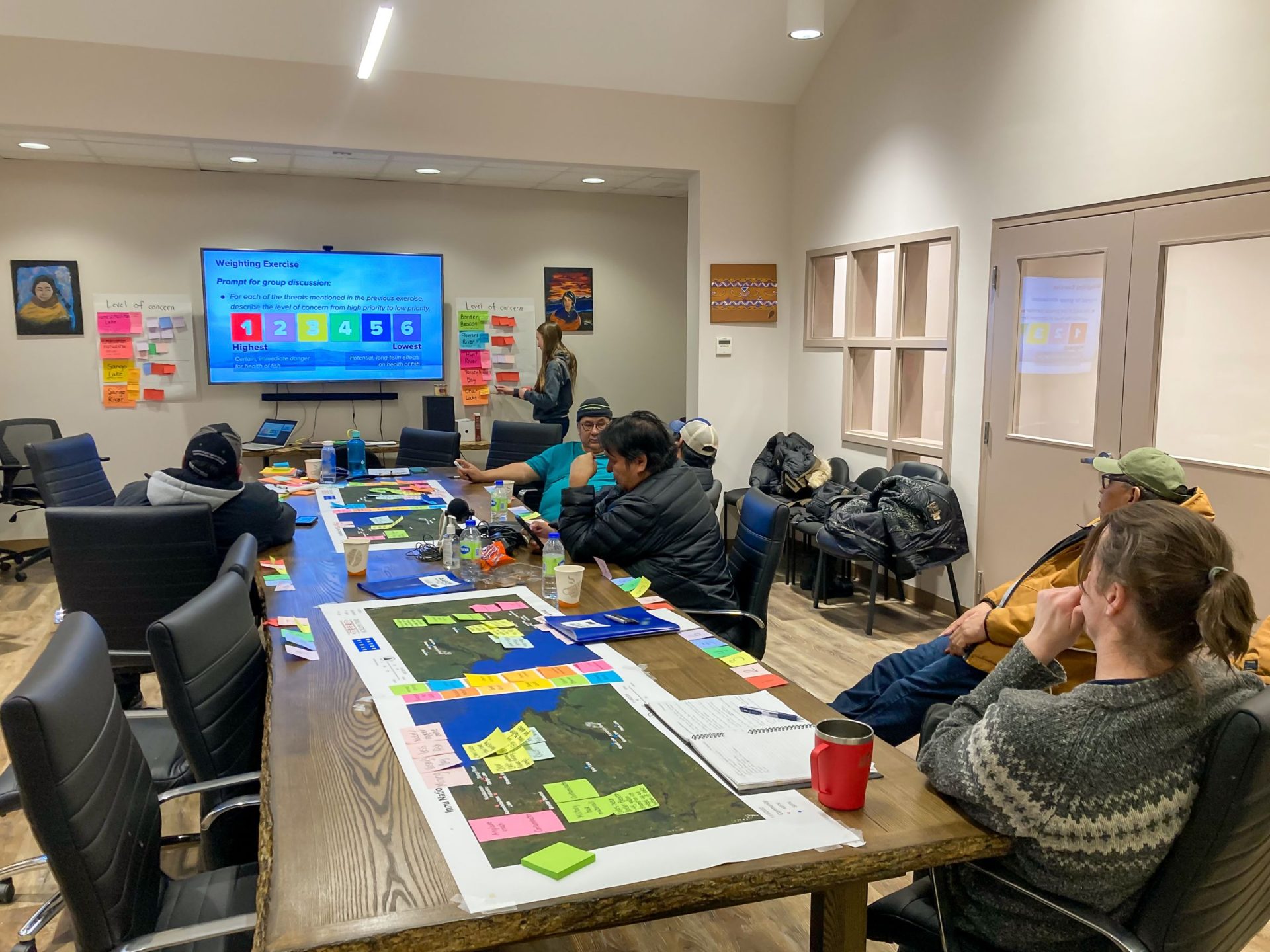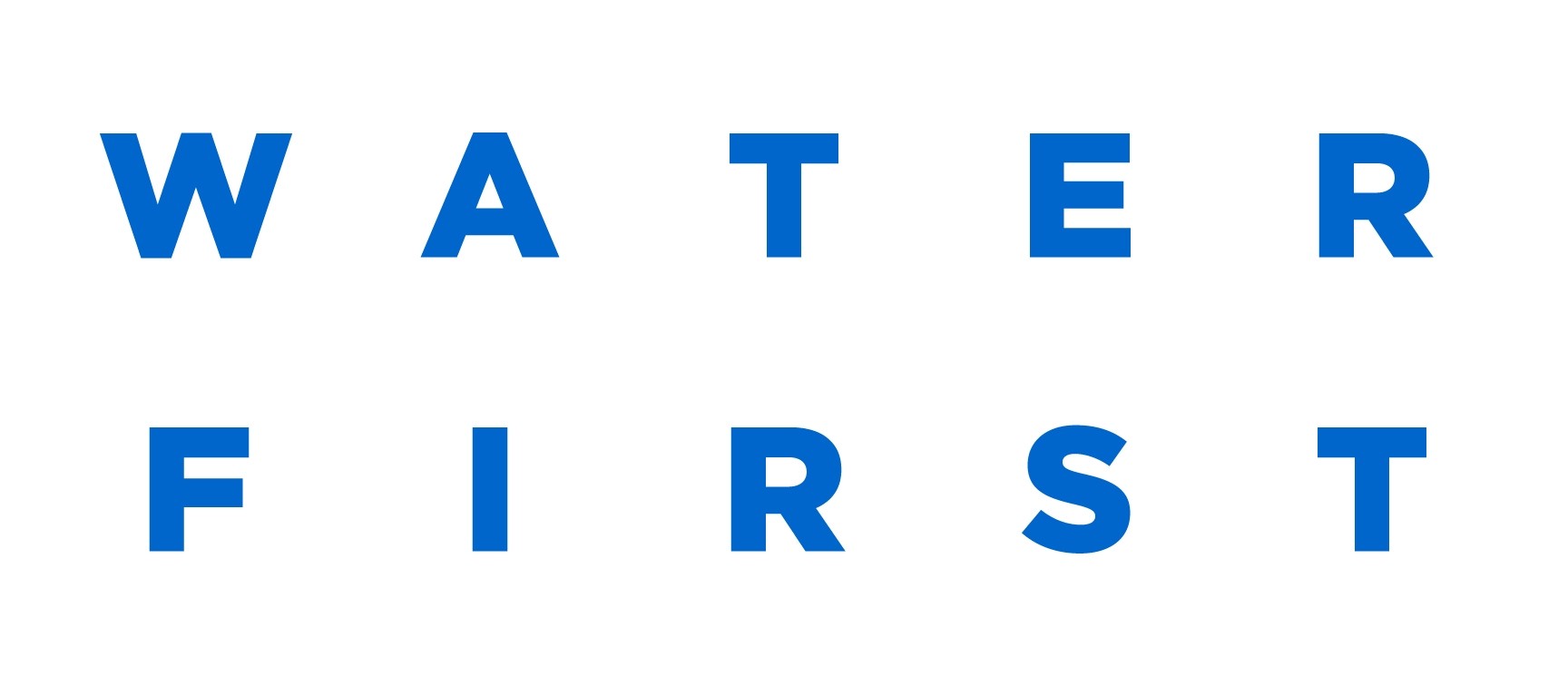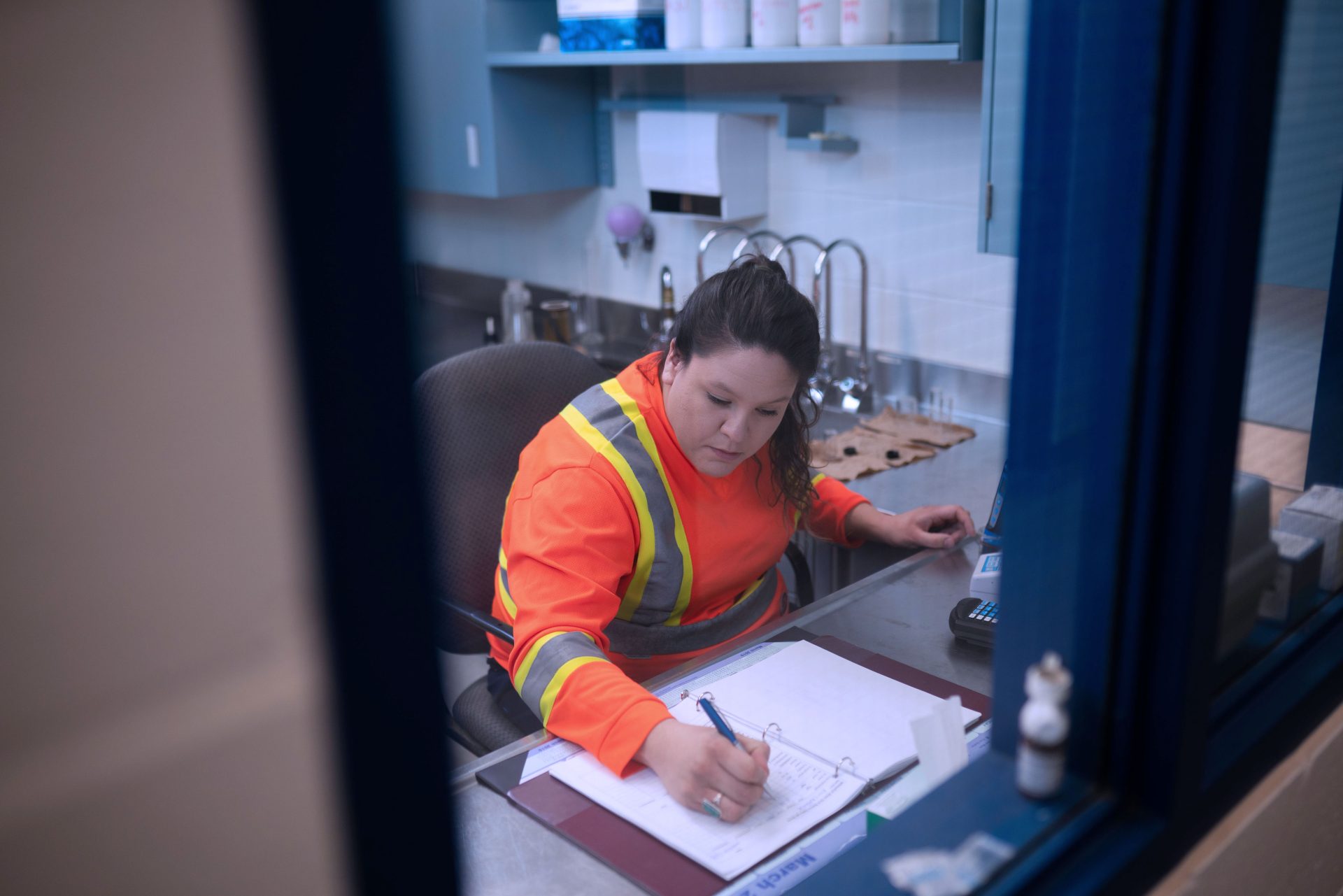Innu Nation has a deep understanding about the stressors on fish populations on their traditional territory. Water First is supporting Innu Nation to co-create the tools and approaches for implementing a robust fish monitoring program.
Last year, Innu Nation in Labrador approached Water First for support in applying for funding to create an Aboriginal Aquatic Resource and Oceans Management (AAROM) department, and to develop a strategic plan for the new department. Our first visit to Innu Nation gave Water First staff, Ryan, Casey and Adrianna, the opportunity to connect with members of the community and better understand local priorities and goals. The funding application was successful. The new AAROM department allows Innu Nation to marshal resources and knowledge to provide fisheries, habitat, science, and oceans-related services in the local watershed, and to support co-management and decision-making around aquatic resources and ocean management.
Developing the AAROM department includes working with Innu Nation Guardians in the area to conduct fish monitoring. Guardians are trained individuals who act as “boots on the ground” to help manage and monitor local lands and water. The involvement of Guardians in the work of the AAROM will support efforts to protect the relationship between the Innu people, the land, and their culture.
In January 2023, Water First returned to Natuashish, one of two communities within Innu Nation, to continue our collaboration. Cory and Alex from Water First’s Environmental Water Program facilitated a cumulative effects workshop, which will support the development of a cumulative effects framework – work that will support the newly-created AAROM department.

A cumulative effects framework will support the Innu Nation in evaluating threats and impacts of multiple stressors on the Innu fish harvest. The cumulative effects workshop was the first step in building that framework.
The Guardians participated in the workshop, so their perspectives on the value of and threats to the fish harvest could be gathered. The workshop helped to advance knowledge related to the different ways that fish can be affected in Innu Nation waters and identify where knowledge gaps might be. This kind of collaborative work allows for more voices to be heard when shaping plans for ongoing monitoring activities.
The work that Water First is doing with Innu Nation will provide Guardians with the tools to conduct consultations with the broader community, which will gather more information about threats to and value of fish harvest – including details like why certain fish are important, which lakes and bays are important for fishing, and other local knowledge and concerns.
Innu Guardians will also have the tools to create an outreach activity to engage with youth in their community, through knowledge exchange and teaching about projects happening on their land. This information is used to support decisions around the sites and parameters that should be monitored by the AAROM department.

Following consultation, Water First and Innu Nation will co-create an action plan with potential approaches for Innu Nation to integrate traditional knowledge about fisheries gathered through Guardian-led community consultations with monitoring data collected through AAROM monitoring activities.
Ultimately, the consultations and information-gathering, along with the cumulative effects framework, will support the work of the Innu Nation Guardians and the AAROM and inform Indigenous-led stewardship and management decisions related to fish and aquatic resources.
Water First is excited to continue this collaboration with Innu Nation to support the long-term health of the watershed.


